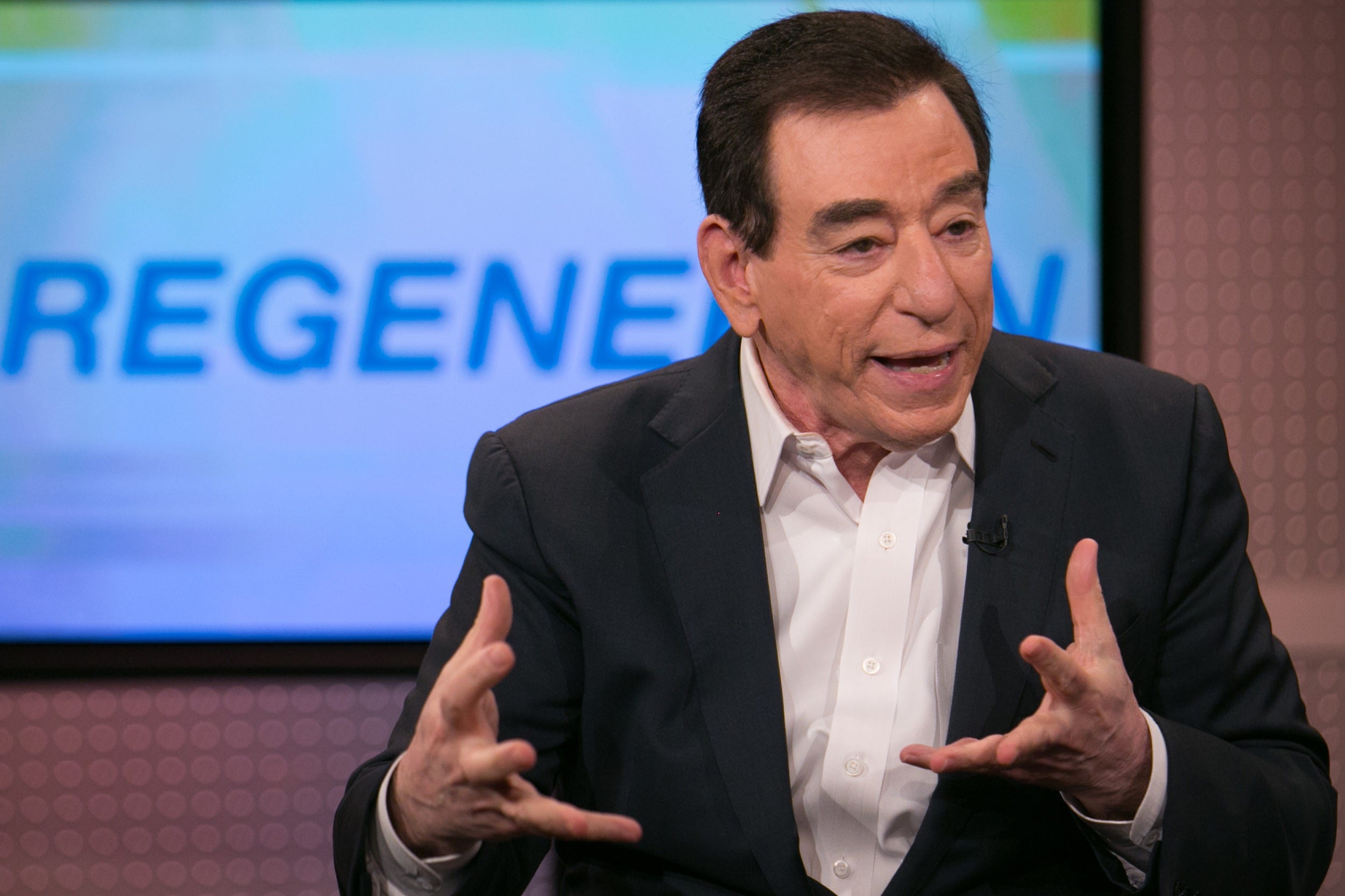
Adam Jeffery/CNBC/NBCU Photo Bank/NBCUniversal via Getty Images
- Regeneron’s CEO says Trump’s use of REGN-COV2 is just one case study, and isn’t conclusive to how well the drug will work on others.
- Regeneron’s antibody treatment, REGN-COV2, has yet to be approved by the FDA for emergency use.
- Visit Business Insider’s homepage for more stories.
During an interview with “Face the Nation” on Sunday, Regeneron CEO Leonard Schleifer said that Trump’s experience with the drug is “the weakest evidence you can get.” While the president has said he’s feeling better as a result of the treatments he’s taken, he has yet to take another test to produce a negative result.
“The president’s case is a case of one, and that’s what we call a case report,” said Schleifer. He added that there were some interesting aspects of Trump’s case, including the fact that “he was elderly, [and] he had some risk factors.”
While at Walter Reed National Military Medical Center earlier this month, Trump received 8 grams of Regeneron’s drug, REGN-COV2, which is a combination of two monoclonal antibodies.
In September, Regeneron said its treatment has been able to improve virus symptoms in non-hospitalized patients. It’s still unclear how well the drug will work on patients in hospitals, as reported by Reuters.
“The real evidence has to come about how good a drug is and what it will do on average has to come from these large clinical trials, these randomized clinical trials, which are the gold standard,” said Schleifer. “We’ve got some preliminary evidence that we’ve talked with the FDA, and we’re going for an emergency use authorization, because we think it’s appropriate at this time.”
The antibody cocktail has yet to receive emergency FDA approval, but the government has struck a deal for 300,000 doses. If the drug is approved for emergency approval, only 50,000 doses will be available. That could lead to issues further down the line, as 57,420 new COVID-19 cases were reported last Friday alone, according to CNN.
"Regeneron can't do this alone," said Schleifer. "We need the entire industry."
During an interview last week on CNBC's "Squawk Box," Schleifer said requests for FDA "compassionate use" — the policy allowing the president to receive early access to the experimental drug — have increased since Trump received treatment, putting the pharmaceutical company "in a tough situation." He has encouraged people to join clinical trials if possible, which will not only allow for a possibility of receiving the treatment, but will also help move the drug toward a potential FDA approval.
"We have tried to take a principled approach until there is a broader authorization," said Schleifer during the same interview. "Asking somebody like the president to go into a clinical trial just wasn't practical."
